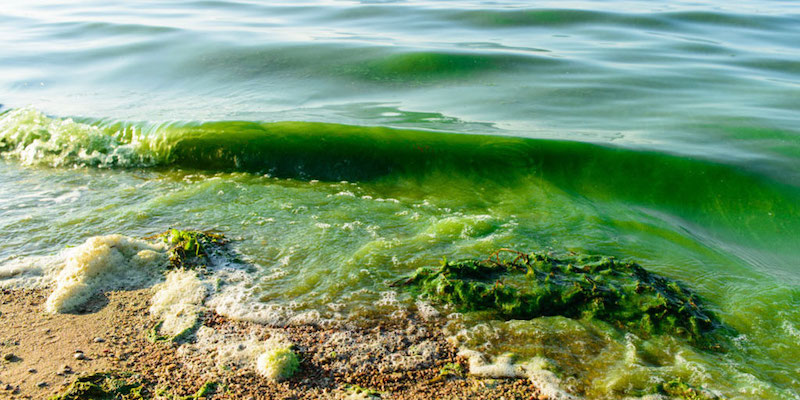
Coral reefs, Earth's vibrant marine nurseries teeming with diverse life forms, face an alarming rate of decline due to multiple factors, prominent among which is agricultural runoff. The chemical constituents of artificial fertilizers used in modern farming practices, such as phosphorus and potassium, vital for plant growth, inadvertently end up in our oceans via seeping into the soil and flowing through water bodies.

Once these chemicals reach the ocean, they become catalysts for explosive algae growth, resulting in phenomena known as red, green, and brown tides. These tides refer to massive algal blooms fostered by excess nutrients such as phosphorus and nitrogen. Following these blooms, as the algae die and decompose, they consume oxygen in the process, resulting in areas devoid of life, known as dead zones. Coral reefs, dependent on a well-balanced ecosystem of oxygen and nutrients, suffer gravely in these zones.
Red tides, caused by dinoflagellate algae, produce toxic compounds harmful to marine life and humans. Green tides owe their occurrence to a different species of algae, which can engulf coral reefs, depriving them of necessary sunlight. Brown tides, triggered by another variety of algae, can decrease water transparency and hinder photosynthesis in coral reefs.
The massive algal blooms can lead to oxygen depletion and shading of corals, inhibiting their ability to photosynthesize and ultimately survive. To make matters worse, toxins released by some algal species pose a threat to the fish and invertebrates that rely on the coral reefs.
The Global Coral Reef Monitoring Network reports that more than half of all global coral reefs have been lost. Coral reefs in the Caribbean, Australia, the and the islands of the South Pacific have been impacted due to rising sea temperatures from agricultural runoff.
The causes align with global trends: climate change and human activities leading to pollution and habitat destruction.
Key to the preservation and restoration of global coral reefs is preventing the runoff of fertilizers into the oceans. An innovative approach developed by Crop Circle Farms, known as cavitated agriculture, focuses on retaining nutrients at the root of each plant throughout its growth. This method substantially reduces the need for fertilizers, with plants requiring 90% less nutrient supply. Furthermore, sourcing locally available, organic fertilizers from composted plant matter and animal manure would not only be beneficial for plant growth but also significantly more environmentally friendly.
Ready to transform your land into a high-yield, sustainable farm? Let Crop Circle Farms design and build a custom, low-impact, and water-efficient farm tailored to your needs. Double your income and cut your costs in half! Contact Us
Help us expand our mission to revolutionize agriculture globally. We are seeking partners to implement Crop Circle Farms to feed people in need. Together, we can build scalable food production systems that save water, reduce costs, and feed thousands of people. Contact Growing To Give